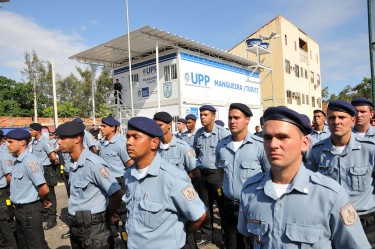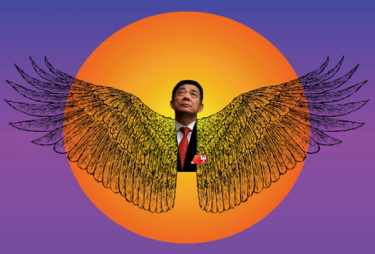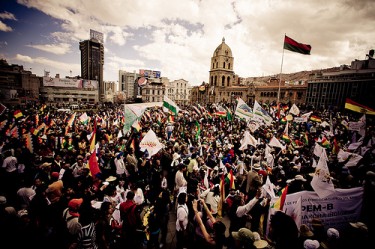
In recent years, the state government of Rio de Janeiro, Brazil, has adopted a security policy based on the installation of Pacifying Police Units (Unidades de Polícia Pacificadoras), known as UPPs. The aim of the UPP strategy [pt] is to place permanent police units in favelas (shanty towns) to tackle crime and promote social policies.
Since December 2008, 18 different favelas out of almost 1,000 in the capital city of Rio have received UPPs. In an article for Rede Brasil Atual [pt], Maurício Thuswohl argues that the UPPs have been placed in strategic areas:
“O desenho traçado pelas UPPs no mapa do Rio evidencia a intenção do governo de criar um cinturão de segurança nos bairros com maior poder aquisitivo e nas áreas da cidade onde ocorrerão eventos e concentração de turistas estrangeiros durante a Copa do Mundo de 2014 e as Olimpíadas de 2016.”
“The outline of the UPPs on a map of Rio testifies to the government’s intention to create a ‘safety belt’ for more affluent neighborhoods and areas of the city where there will be events and large numbers of foreign tourists during the 2014 World Cup and the 2016 Olympics.”



